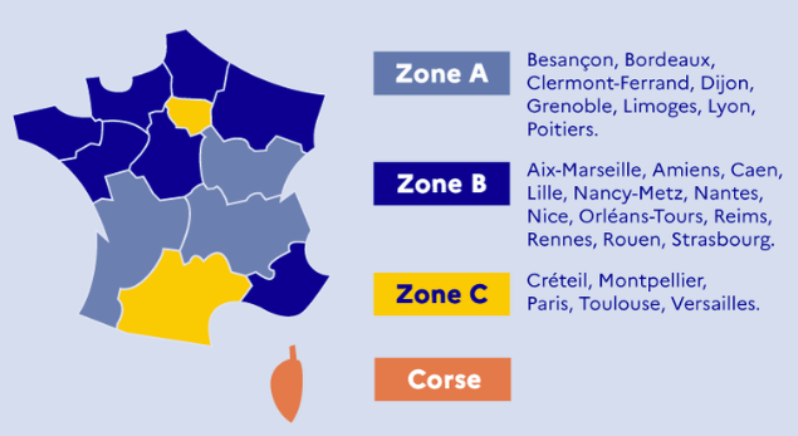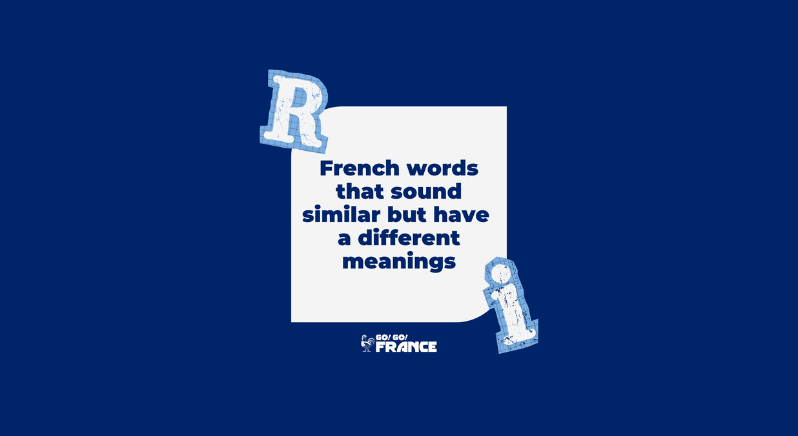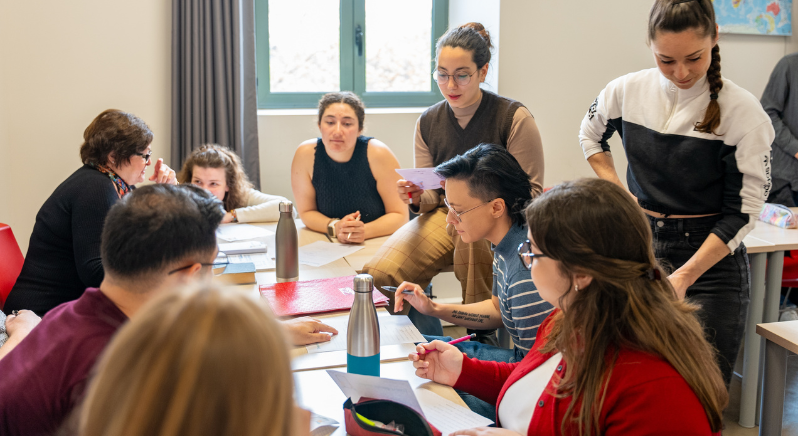Have you ever dreamed of learning French while living in France? In this article, we’ll explore the opportunities available for living and studying in France, highlighting the benefits and drawbacks of each.
This guide will help you find the study option that best suits your needs!

Long-term options to study in France
If you’re looking to develop fluency in French, explore the country in-depth, and fully experience life in France, getting a student visa is one of the best options for you.
A student visa comes with several perks, including the ability to work part-time, access to the national healthcare system, and the opportunity to open a local bank account. It also makes finding housing easier and gives you the flexibility to explore more of the country during your stay.
Long-term student visa (3 months to 1 year)
For training or a course exceeding 6 months, you will be issued a long-stay visa, equivalent to a residence permit, which will be subject to further formalities on your arrival in France.
Pros:
- Freely travel to any country within the Schengen Area
- Eligible for part-time work (around 20 hours per week) to supplement your finances
- Free access to national health insurance
- Eligible for VISALE, the free security deposit service for students
- Potential to receive housing subsidies from the CAF
- Option to extend your stay beyond the validity of the initial residence permit
Cons:
- The application process can be lengthy and confusing, especially if you’re applying on your own
- You must show proof of funds of at least €615 per month of study
Temporary long-term student visa (3 months to 1 year)
For a training course exceeding 3 months or 6 months, you will be issued a temporary long-stay visa, which will require no further formalities on your arrival in France;
Pros:
- Freely travel to any country within the Schengen Area
- Free access to national health insurance
Cons:
- Not eligible to work during your studies
- Cannot access VISALE, the free rental deposit service for students
- Not eligible for housing allowances through the CAF
- Cannot extend your stay beyond the validity of the issued residence permit
Working holiday visa (1 year)
If your country has a working holiday visa agreement with France, this offers another way to experience the country while studying. A working holiday visa lets you stay in France for 1 year as a tourist, allowing you to study, work, and explore the country.
Holders of a working holiday visa don’t need to complete formalities upon arrival in France and can stay for the full visa duration without needing a residency permit. A work permit isn’t required either.
This visa is available for citizens aged 18 to 30 (or 35 for Canadian citizens) from countries with a bilateral agreement with France.
Pros:
- No limit on working hours
- Lower financial requirements compared to a student visa
- Easy application process from your home country; no need for school acceptance or employer sponsorship
Cons:
- Age restriction (18 to 30 years old)
- Only available for certain countries
- No access to national health insurance and housing allowance
- Limited to one year, with no option for renewal or extension; if you don’t use the full visa duration, you cannot reapply later to complete it

Short-term options to study in France
If a long stay in France isn’t possible, there are short-term options that don’t require a student visa. While these come with fewer benefits, they’re a great way to improve your French and experience the culture without a long-term commitment.
Temporary visitor visa (1 month to 3 months)
For a training course not exceeding 3 months:
- Nationals of European Economic Area (EEA) countries (EU countries, Iceland, Norway, Liechtenstein) or Switzerland don’t need a visa to study in France
- Nationals from the EU’s list of countries exempt from visa requirements for stays up to 90 days don’t need a visa either
- If you’re not part of these groups, you must obtain a temporary visitor visa.
Pros:
- No visa required for many countries
- Straightforward application process
- Flexible start dates
- No need for a long-term commitment
Cons:
- No access to part-time work
- No access to national health insurance
- Limited time to make significant progress in learning French
Study trips (from 1 week)
Another popular option is joining a group study trip. Our tailor-made study trips cater to educational institutions of all levels, including high schools, colleges, universities, and language centers worldwide.
Our study trips for groups in France are fully customizable. Share your ideas, and we’ll tailor the perfect educational journey to fit your students’ needs, budget, and time constraints. Contact us here!

Live and study in France with Go! Go! France
At Go! Go! France, we help international students live and study in France! From choosing the right city and school to handling paperwork and accommodation, we guide you through every step of the process. With our expert advice and local support, you can focus on enjoying your time in France without the stress of logistics.
Ready to start your French adventure? Contact us today to get personalized assistance and make your dream of studying in France a reality!











